Have you ever heard of the- no thank you bite?
I was sitting across the kitchen table looking at three plates, basically untouched, thinking to myself, “Really? Why do I even bother to make dinner?” Spaghetti, broccoli, bread, and watermelon were left for the flies. As the chairs around the table emptied, the plates were still full. Can you relate? Please tell me you can! I often work so hard to put a meal together, one that I think my kids will enjoy, and maybe even one they have previously devoured, but instead of being gobbled down with a big “Yumm”, it’s dumped in the garbage.
I have to hold myself back from putting the pressure on to “just try a bite” or offer a bribe they can’t refuse. I’ve heard others use the “no thank you bite” rule. You have to try a bite of everything, and if you don’t like it you can spit it out with a “no thank you”. It’s so frustrating to make a meal and have it go straight in the trash. I get it! However, using these strategies are based on assuaging our own fears, but they rarely do anything to help create a more positive relationship with food for our children. We fear they will grow up to never touch a vegetable or we believe their right arm will fall off from a lack of protein. I joke!
But really, what makes us require a no thank you bite?
What are your fears?
It’s important to get really concrete about what you are scared will happen if they don’t eat a meal or a certain food? Make a list. Write it down. Are these rational fears? Most likely, not.
My head spins with these thoughts at times too. It’s easy to want to jump in with a solution to make ourselves feel better NOW:
“Try the asparagus and you can watch your show.”
“You need to eat half of your sandwich and your apples before you can get up.”
“If you eat your carrots you can have more pizza.”
“Look at the airplane. Look at the airplane. There it goes, zoom into your mouth.”
We often use pressure, bribery, or force to get our children to try a certain food or finish a certain portion of the plate. The problem is, that makes us feel better. We can feel better knowing they consumed some nutrients or the food we worked hard to make was eaten, but it really does not accomplish anything for our kids. And isn’t that our goal, to help them become better eaters?
What actually happens for our children when we require a no thank you bite?
Avoidance.
Have you ever been told you absolutely have to do something? How does that make you feel? Do you get really excited about it or do you tend to procrastinate or avoid it? Might you even find ways to get out of doing it? As human beings we are wired to want to be in control of ourselves. When someone tells us not to do something, we want to do it. When we’re forced to do something, we want to get out of it. When we force a child to eat something we are setting up a battle and creating an inherent desire to avoid the food.
Creates the idea certain foods are inherently not good.
If you have to be forced to eat something, the message being sent is that the food is not good enough to eat it on its own. Who would eat it if they weren’t forced? If children are always being forced to eat vegetables, the idea is that vegetables are not good and no one would eat them unless they were forced to do so. This is not true, many people enjoy vegetables. And with time and exploration, children will naturally learn to like them as well.
Distracts from hunger, appetite, and satiety.
Children are born with the innate ability to self regulate their food intake. They need to be provided with a variety of nutrients (parents’ job), but they can determine how much, if any, to eat. When a child is bribed or pressured to eat, it becomes about the behavior instead of about the internal desire to eat and regulate appropriately. It actually takes away from their ability to naturally say I’m hungry or full and to listen to those cues. If those cues are consistently being overridden they will eventually become muted.
Feeding for the long run.
It is so normal and tempting to want immediate results, the plate emptied and a belly full of zucchini. But feeding isn’t about an individual meal or nutrient. It’s the bigger picture that really matters. How will children be able to feed themselves in the future? Our goal is to raise children who are autonomous individuals in all aspects, including food. We are encouraging them to be in control one day. Competent eaters are able to try new foods because they want to and self regulate by trusting themselves to listen to their bodies. And unfortunately, a no thank you bite doesn’t move them toward competence and self regulation.


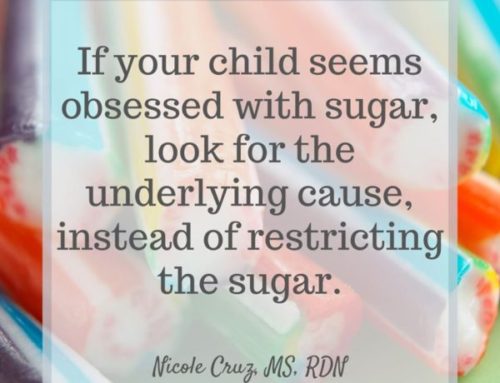
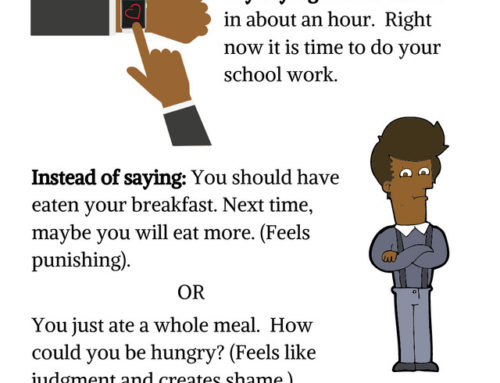
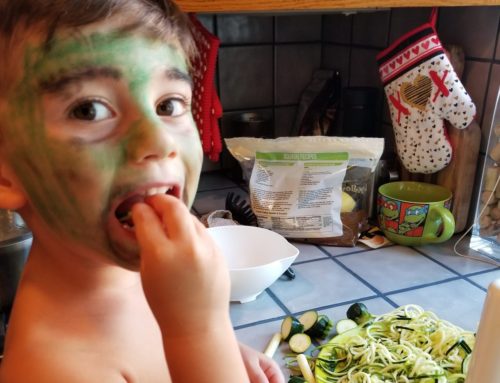
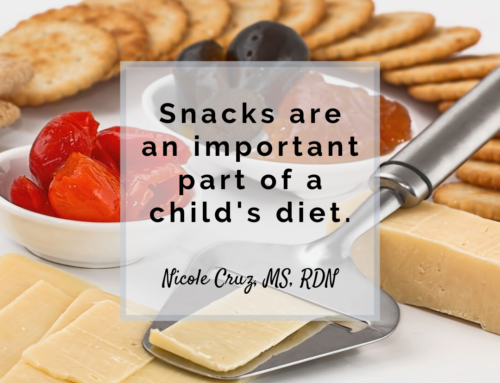
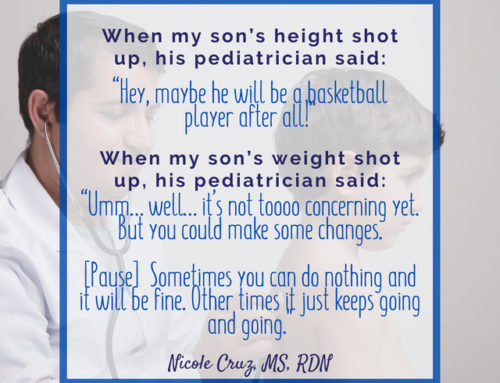
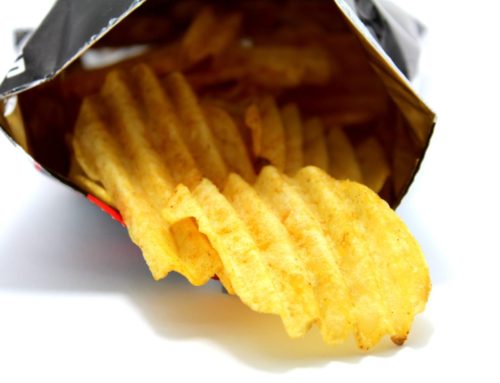
Leave A Comment